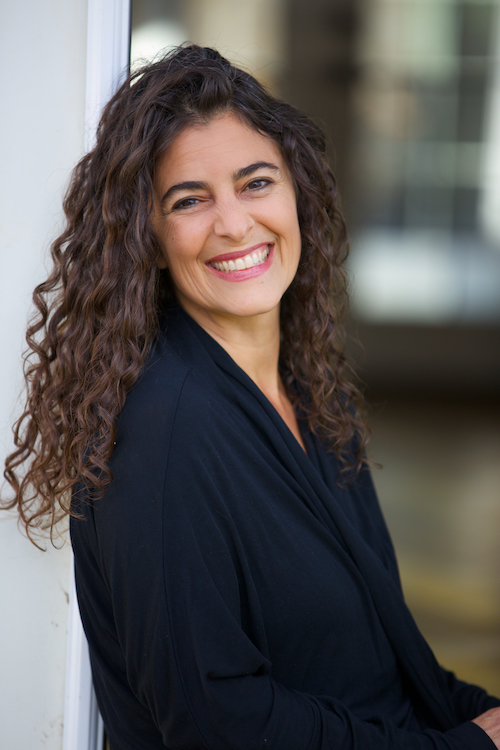Our era has been called the Information Age, the Technology Age, and the Digital Age. But it could also easily be called The Age of Anxiety, for anxiety is rampant and can manifest in so many ways: social anxiety, test anxiety, work anxiety, relationship anxiety, sleep anxiety, fertility anxiety – just to name a few.
There are many ways to address anxiety, as I discuss at length in my blog and courses, and at the core of my work is the understanding that in order to heal from the root, we need to address anxiety from the root, which means understanding that anxiety’s symptoms – intrusive thoughts, worry, insomnia, physical symptoms – are messengers from the unconscious designed to grab our attention so that we will turn inward and pour the light of compassion and curiosity into our shadow realms. This is not fast or easy work, but the fruits of the labor are well worth it, for on the other side of the pain you find the joy of living in alignment with your true self.
When working with anxiety it’s essential to commit to both on-the-spot and deeper practices. Journaling, meditation, and therapy are a few of the deeper practices that work over time to address the root causes of anxiety. But there are also simpler actions we can take that can reduce anxiety dramatically. Exercise is one. Reducing or eliminating alcohol is another. Spending time in nature is a third.
And given the age we’re living in, where the world is streamed through our fingertips, the best piece of advice I can give you to reduce your anxiety is to limit your screentime. I can’t tell you how many thousands of emails and conversations with clients and course members I’ve had over the years that start with, “I was feeling anxious about ________ so I Googled it and my anxiety got ten times worse.”
Limiting screentime means:
- Less Googling
- Less social media
- Less Netflix
- Less reading the news
- Less YouTube
- Less texting
Your screens not only amplify the anxiety that is living inside of you, but they can also cause it. You might be feeling fine, then you jump on your screen in a moment of boredom and the daily headlines conveniently pop up, and before you know it the mildly uncomfortable boredom has been replaced by anxiety. For it’s not the positive headlines that pop up on your screen. No. They’re the headlines designed, as environmentalist Paul Hawken says, “to light up your amygdala – fight or flight as opposed to joy and celebration – because it sells better to advertisers.” The news runs on a 24-hour fear cycle because it knows that that’s how to hook you. If you want to take back your power, reduce your time on screens.
My husband and I have made many mistakes in our parenting, as it’s not possible to parent without messing up, but one of the aspects we’re most proud of is that both of our boys know themselves and like themselves, which naturally results in self-trust, and while many of our parenting decisions have helped them to retain their intrinsic sense of self-trust the one that rises to the top of the list is limiting their screentime.
As a result of intact self-trust, they’re not easily swayed by others’ opinions. They know what they enjoy and what they don’t enjoy. They generally don’t have trouble filling their free time with meaningful activities or sitting around in the vital pool of boredom, which they both understand is necessary for creativity. They’re motivated by an intrinsic desire to learn about their passions and they couldn’t care less about receiving external validation in the form of grades. When my older son had his first graded test, he was more excited about learning the information than the grade he received. This is what self-trust looks like.
Until recently, the only time they watched screens was once a week to learn about science with their Dad and once a week to watch a fun, veryfamily-friendly movie. We have vetted as much media as we could for as long as we could not only to protect their minds but also to protect their souls. Eventually, we decided that Everest, our older son, was old enough to watch more educational shows during the week, but the rule is that he has to be on the treadmill while watching. Because of their limited exposure to inappropriate sexual themes and gender stereotypes, they’ve been free to grow and develop according to their own wisdom and preferences. They haven’t internalized messages that say, “Boys shouldn’t cry” or “Boys should only be interested in these activities” or Boys should only be interested in girls”, and without that powerful download they have been able to follow their own intact compasses.
Everyone has this compass; it’s your birthright. You’re born with self-trust intact, which means you know what you need, what you like, and who you are. But this beautiful self-trust is often interrupted by well-meaning caregivers – parents, teachers, clergy – who believed that it was in your best interest to be told when to eat, sleep, cry, express, play, share, and learn. You were likely told when and how to socialize, what foods your were supposed to eat, and when you could go to the bathroom. As you grew, you were conditioned by an education system to externalize your sense of self even more, teaching you to chase the grade instead of follow your intrinsic interests.
There are so many by-products of lack of self-trust. When you don’t trust yourself, you’re more susceptible to caring about what others think. When you don’t have a full well of self, you don’t know that mistakes and failures are how you grow. When the central c0lumn is weak, you’re a leaf in the windinstead of an old-growth redwood, which makes you reliant on others’ approval. When you don’t know yourself, you lack the self-trust necessary to access the still-point of truth when intrusive thoughts enter your mind.
But it’s not too late. The great news – which is now corroborated by science – is that patterns can be reversed and, with proper support and tools, you can reclaim the self-trust that is rightfully yours. With simple actions – like limiting screentime – and more involved actions and information practiced and implemented over time, you can undo what has been done and become the person you are meant to be. It’s never too late to heal.


